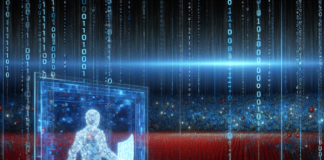In the age of artificial intelligence, the question is no longer if machines can lead—but when. From automating mundane tasks to making high-level strategic decisions, AI is inching closer to the boardroom. But what happens when the person in the corner office isn’t a person at all?
Welcome to the era of AI CEOs—a futuristic concept that’s starting to look surprisingly real.
The Rise of the Algorithmic Leader
We’re already witnessing AI taking on roles traditionally held by executives. In 2025, a Hong Kong-based gaming company, NetDragon Websoft, made headlines when it appointed an AI named Tang Yu as CEO of one of its subsidiaries. Tang Yu was tasked with making data-driven decisions, improving efficiency, and managing operations—without needing coffee breaks or vacation days.
This wasn’t just a publicity stunt. The company claimed that under AI leadership, productivity and profitability improved.
What Can an AI CEO Actually Do?
AI today can:
- Analyze massive datasets instantly
- Predict market trends with high accuracy
- Eliminate human bias from decisions
- Optimize resource allocation
- Run simulations for strategic planning
- Monitor employee performance objectively
Essentially, an AI CEO could potentially outperform a human counterpart in logical, data-centric tasks—something every modern business relies on.
But Can It Lead People?
Here’s the catch: leadership isn’t just about logic and numbers. It’s also about:
- Empathy and emotional intelligence
- Building trust and culture
- Inspiring teams
- Navigating moral gray areas
- Understanding complex human dynamics
These are areas where current AI still falls short. Even with advancements like ChatGPT or other LLMs simulating conversation, they don’t truly understand human emotions, context, or the subtleties of office politics and team morale.
Hybrid Leadership: The Most Likely Scenario
Rather than fully replacing human CEOs, the near future may see hybrid leadership models, where human executives collaborate closely with AI advisors or co-pilots.
Think of an AI that provides real-time insights, runs predictive models, and alerts leaders to risks—leaving the human CEO to make the final call, especially on nuanced, emotional, or ethical issues.
This could create a powerful synergy: machine precision meets human judgment.
Risks and Concerns
Of course, the idea of an AI CEO raises serious questions:
- Accountability: Who’s responsible if the AI makes a wrong decision?
- Ethics: Can a machine prioritize social impact over profit?
- Security: Could AI leadership be manipulated or hacked?
- Jobs: If AI can lead, what happens to future executives?
These concerns will need regulation, transparency, and public debate before machines take the reins.
So—Will Your Next Boss Be a Machine?
Maybe not tomorrow. But five or ten years from now? It’s entirely possible you’ll report to—or work alongside—an AI executive who crunches numbers faster than any MBA ever could.
And while machines may not inspire like Steve Jobs or lead revolutions like Elon Musk, they might just run a company with flawless logic and relentless efficiency.
In the end, the smartest companies of the future may be the ones where humans and AI lead together—each doing what they do best.
Visit our website to get more updates



